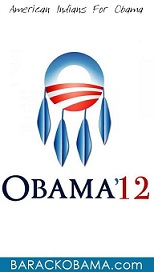By Original Pechanga
"In the 21st .Century, who would have thought that the Indian Wars would begin anew? This is not the war of racist whites who wanted to move west no matter who was hurt. This time, it's greedy Indians who want more money, no matter which tribal members they hurt. The 21st century Indian War is now Indian vs. Indian. Tribes such as Pechanga of Temecula, Redding Rancheria, Jamul of San Diego, Enterprise Rancheria are violating their members civil rights, eliminating them from tribal rolls and denying them their part of the tribe. And because of California Tribe's use of sovereignty, it can be "we just don't like you" or "we don't believe the evidence" (are you going to believe me or your lying eyes?), In California's Indian Country, wealthy casino tribes are gorging themselves with cash, the fruits of their casino, thanks to laws passed by the citizens of California. Prop 1A and Prop. 5 were passed overwhelmingly, thanks to ads that promised not to expand gaming and to help tribes with self reliance.
.
To the California populace, this meant that tribes would be able to take care of their own membership. Those living in poverty would be brought forth; non gaming tribes would benefit from a fund that gaming tribes would contribute to. A 'lifting of all boats' if you will. What has happened in that time has in fact helped some tribes. San Manuel of San Bernardino has developed their reservation from dirt poor to one of the wealthiest in the state and tribal members are definitely in the top 1/10th of income earners in California. And they are taking care of their people. Their population is limited, with fewer than 200 members. Morongo of Cabazon is another example of good governing. Sadly, some tribes could not stand to share their good fortune. Visions of more money, or living at San Manuel standards blinded some with greed and envy. The Pechanga Band of Luiseno Mission Indians is one such tribe. Blessed with an excellent location near a freeway and with easy access and a growing population, the Pechanga Resort and Casino was successful and thriving. With just over 1,000 adult members, the tribe was, by 2004 able to provide their members with a monthly per capita check of $15,000 and quarterly bonuses. Additionally, the tribe provided health care via Blue Shield, Dental, Eye and extra benefits for elders. Also included was educational assistance including college scholarships for which all was needed was a C average. Even John Kerry and G. W. Bush could have kept a scholarship.
But that wasn't enough for a splinter group of band members, the Concerned Pechanga People. This group of extremists made threatening advances on tribal enrollment committee members, storming offices demanding that people be disenrolled. The disenrollment process was initiated in a Salem-witch-trial like atmosphere. Letters saying, "I think that family should be investigated" and "there is a person from OHIO that had the same name, we think it was their ancestor. Never mind that one of the ancestors under investigation had land on the reservation for well over 100 years, given to them from President McKinley. The process has been recounted in the article from Harpers "A Paper Trail of Tears" detailing the ouster of the family of the original headman of the Pechangas, Pablo Apis. The evidence for Paulina Hunter's family is detailed in "Without a Tribe" an investigative report from KNBC-TV in Los Angeles. The investigation went on for months and as recounted in the piece, Pechanga refused to speak to KNBC until the day before the airing.
Comically, Pechanga had to buy a 30 second spot during February sweeps (a bit more costly) to tell their story. In watching the report, it was clear that Pechanga Chairman Mark Macarro was caught in a lie, and he was called on it by anchor Colleen Williams. The report featured noted anthropologist, Dr. John Johnson, curator of the Natural History Museum in Santa Barbara, and an expert in his field, possibly without equal. What is the significance of Dr. Johnson? Well, the Pechanga tribe hired him to research Paulina Hunter's ancestry. They went for the best and he found the truth about Paulina; she was indeed Pechanga, "100%" he said. Now keep in mind that this gentlemen has worked with California Mission Indians for decades, heavily researching Las Padrones, the historical record of the priests of Mission San Luis Rey (from which Luiseno comes)
Some authors, who are concerned that sovereignty issues outweigh any damage to families of disenrolled, ask the question: Are they violating tribal law or US law, because US law wouldn't apply to a sovereign nation. Well the answer is: They are violating tribal law. Pechanga's constitution requires open enrollment every January with specific requirements for enrollment. There is no blood quantum required; the requirement is lineal descent from an original Pechanga person.
Pechanga has a moratorium in place which has kept new members from joining the tribe. The moratorium is not authorized in the constitution. There was a petition brought forth to the tribe, it was ruled valid and voted upon. The moratorium, unconstitutionally, was passed. The Tribal Council explained that "the people have spoken" and it's now law until repealed. Later, when a petition was brought forth to end all disenrollment, it was ruled valid and voted upon, after the question of the Hunter family's disenrollment process was brought up, Chairman Macarro said, "all means all".
The people voted to end all disenrollments. The will of the people was spoken. Months later, the tribe was sent a letter saying that the Hunter family disenrollment couldn't be stopped by a vote of the people; they had to right to vote on enrollment matters. Okay so the people had a right to STOP new members coming in, but not to stop lifelong members from going out? I think this answers the question of violations of law.
This is sovereignty that is wielded like a club, not for the good of the members, but to their detriment. These websites and blogs can help answer questions, and there will be more articles like this one."
by author
key issues and challenges
The Other "CA"
Residential schools in Canada - Beatings, Torture, and the atrocity of cultural "genocide"
(and insights)

The world around us is filled with everything we need |
Wakan Tanka
The Great Unseen

Redding's thoroughly multicultural beginnings
food for thought

